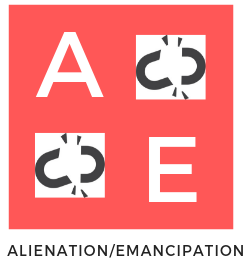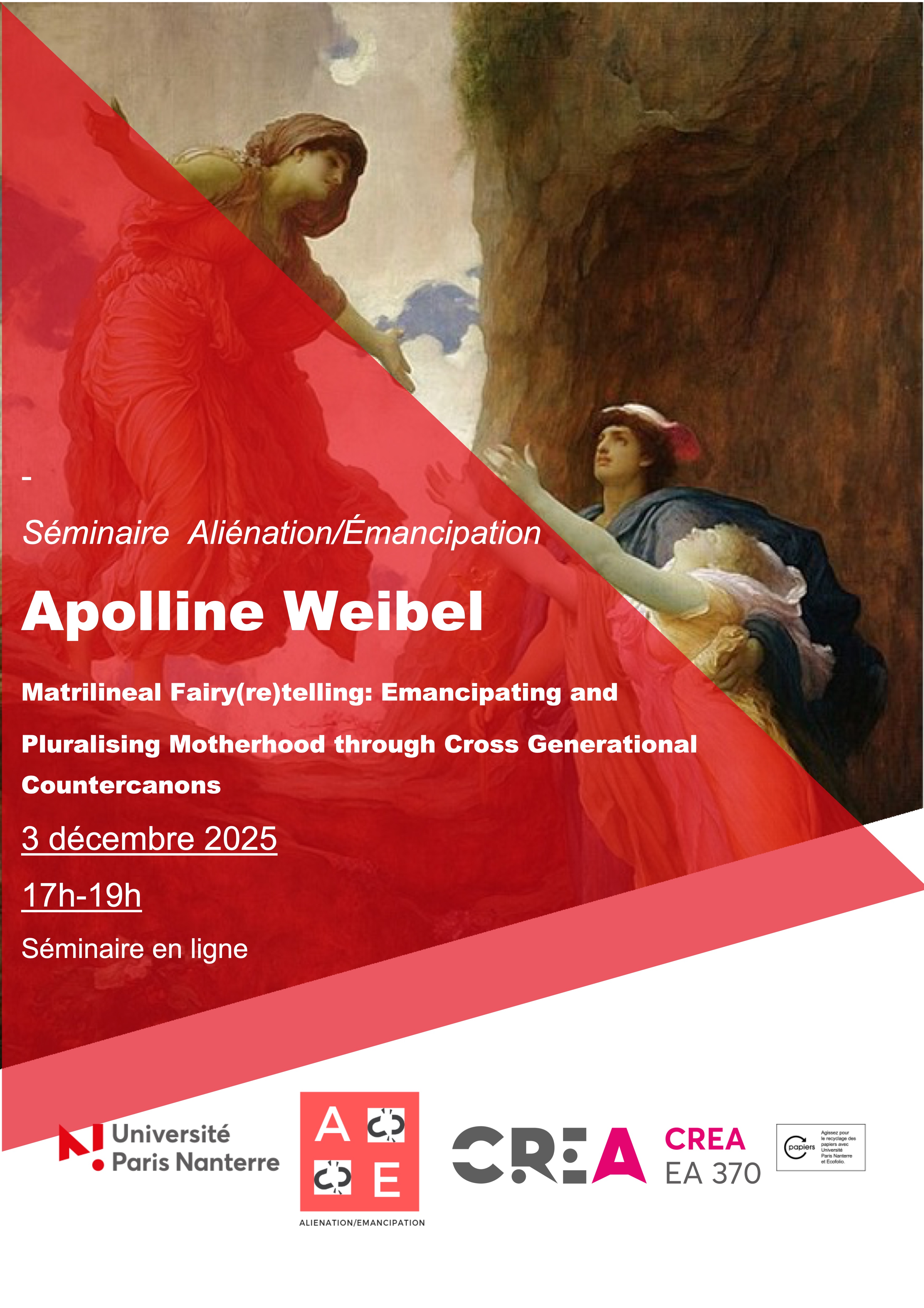Version française / Séminaires
- Recherche - LLS,
Séminaire Aliénation/Émancipation : Apolline Weibel

Matrilineal Fairy(re)telling: Emancipating and Pluralising Motherhood through Cross Generational Countercanons
le 3 décembre 2025
Cette séance est organisée en partenariat avec le séminaire FAAAM
Abstract
While the fairy-tale genre has arguably coined one of the most enduring literary archetypes of deficient mothering in the figure of the wicked (step)mother, it paradoxically finds its roots within a tradition of oral storytelling and generational transmission which cannot be divorced from the realm of the maternal. The place of fairy-tale (step)mothers is therefore of particular interest in the context of the rapidly-developing subgenre of contemporary anglophone fairy tale retellings, often intent on crafting a feminist alternative as a response to the deeply patriarchal slant of the genre canon. Thus, the figure of the antagonistic (step)mother strikes one as a timeless and necessary foil to the hero’s journey—all the more so in stories centring female characters.
Nevertheless, a body of distinctively matricentric fairy-tales has undoubtedly emerged in the wake of Angela Carter’s The Bloody Chamber (1979), developing in the margins of an already disruptive countercanon. The character of the fairy tale (step)mother, therefore, is particularly interesting in what it reflects of the external and internal ambivalence still surrounding motherhood—be it as an as experience or as an institution, to borrow the distinction established by Adrienne Rich in Of Woman Born (1976).
This presentation thus assesses the mutations and transformations of wicked mothering through the prism of contemporary “fairy(re)telling”, as well as the way they impact and alter the prototypical “mother/daughter plot” (Hirsch, 1989). To do so, I look at the fairy-tale genre as a starting point to explore matrilineal stories and storytelling, building upon archetypal characters and narratives to question and complicate filiation between women. Indeed, by dissecting the figure of the (step)mother—delving in so doing into how her wickedness intersects with the maternal—contemporary fairy-tale variants strive to discuss mothering in a much more central yet layered manner than their literary forefathers.
The inherently cyclical dimension of fairy-tales and story(re)telling makes this genre a particularly apt means for imperfect, fallible mothers to put words to their systematic silencing and alienation, and ignite their emancipation from text and context alike. In fact, not only are wicked (step)mothers often turned into storytellers in these new stories of old, the fairy-tale form itself becomes instrumental in (re)establishing matrilineal dialogue across generations: not unlike their diegetic counterparts, “mother-stories” and “daughter-stories” (Schanoes, 2014) are simultaneously contiguous and not, neither overlapping nor altogether severed from one another.
Woven together from the rags of a matrophobic genre, a motley body of fairy stories thus emerges from the works of—among others—Margaret Atwood, Emma Donoghue, Nikita Gill, Tanith Lee and Danielle Teller. In so doing, this burgeoning countercanon also carves out space for an increasingly diverse, polyphonic and versatile understanding of the maternal—one where ambivalence does not negate kinship, and écriture maternelle exists as a de-essentialised form of (pro)creation and (re)production.
Thus, while the archetype of the wicked stepmother was initially born from a desire to reconcile literary displays of maternal violence with the patriarchal ideal of motherhood as innate and infallible, her contemporary counterparts have become—by virtue of embodying the margins of normative, heteronuclear filiation—unexpected figureheads in social and literary attempts to approach mothering as an act rather than as a gendered identity per se. By emancipating fairy(re)telling from the alienating confines of matrilineal tragedy and generational entropy, these new tales are uniquely able to explore the continuum and intersections between different scales of care and nurture, weaving in so doing a matrilineal countercanon of cross-generational dialogue and hybrid mother tongues.
Répondante : Alice Braun (Université Paris Nanterre)
Bibliography
Apolline Weibel conducted her PhD at the Université Sorbonne Nouvelle, under the supervision of Professor Isabelle Alfandary. Her dissertation, which she defended in 2023, focuses on the representation of (step)motherhood in contemporary anglophone fairy-tale retellings. Apolline currently holds the position of associate professor of English at the Université Paris 1 Panthéon Sorbonne. Concurrently, she works as a postdoctoral research fellow for the interdisciplinary laboratory PRISMES (EA 4398).Mis à jour le 24 novembre 2025
Contact :
Inscription













